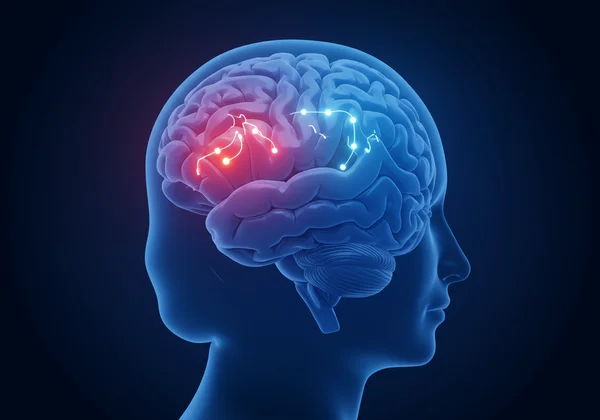Anhedonia Test: Understanding the Signs of Emotional Numbness
August 26, 2025 | By Corina Valerio
Do you ever feel like the world is playing in muted colors? You remember what it felt like to enjoy a beautiful sunset, a favorite song, or a good meal, but now those experiences feel flat and distant. If this sense of emotional numbness resonates with you, you might be wondering, Am I anhedonic? Taking a confidential anhedonia test is a crucial first step toward understanding these feelings and rediscovering your capacity for joy. This guide will explore what anhedonia is, its common symptoms, and how a reliable self-assessment can provide the clarity you need.
Feeling ready to understand your emotional landscape better? You can take our free test for instant, private insights.
What is Anhedonia? A Deeper Look Beyond Sadness
Anhedonia is not simply feeling sad or having a bad day. It’s a core symptom of several mental health conditions, most notably depression, and is defined as a significantly reduced ability to experience pleasure from activities you once found enjoyable. It’s the emotional equivalent of losing your sense of taste; the food is there, but the flavor is gone. This experience can be confusing and isolating, making you feel disconnected from yourself and the world around you.
Many people mistake this condition for laziness or simple boredom. However, it's a legitimate psychological symptom with neurological roots. Anhedonia can profoundly impact your motivation, relationships, and overall quality of life. Understanding that this is more than just a mood swing is the first step toward addressing it. The feeling of being stuck in neutral is often a key indicator of underlying anhedonia depression.

Key Anhedonia Symptoms You Shouldn't Ignore
Anhedonia manifests in different ways, affecting both your social interactions and your physical sensations. Recognizing these specific signs is vital for a clear self-assessment. While only a professional can provide a diagnosis, identifying with these symptoms may suggest that an online anhedonia test could be a helpful tool for you.
Social Anhedonia: Feeling Disconnected from Others
Do you find yourself withdrawing from friends and family? Social anhedonia is characterized by a diminished interest in social contact and a lack of pleasure from interpersonal relationships. You might force yourself to attend gatherings but feel detached or uninterested in conversations.
Common signs of social anhedonia include:
- Avoiding social events you used to look forward to.
- Feeling no joy or warmth from spending time with loved ones.
- A reduced interest in forming new relationships or maintaining existing ones.
- Finding it difficult to feel empathy or connect emotionally with others.
This isn't the same as introversion. Introverts enjoy their alone time to recharge, but they can still find pleasure in meaningful social interactions. Social anhedonia, however, is a lack of that pleasure altogether.

Physical Anhedonia: The Loss of Bodily Pleasures
This type of anhedonia relates to the inability to enjoy physical sensations. Physical anhedonia can make life's simplest pleasures feel empty and unrewarding. The satisfaction from a delicious meal, the comfort of a warm hug, or the beauty of music might seem inaccessible.
Symptoms of physical anhedonia can include:
- Food tasting bland or unappealing.
- Losing interest in physical intimacy or touch.
- No longer enjoying sensory experiences like listening to music, smelling flowers, or appreciating art.
- A decreased physical response to things that should feel good.
This loss can be particularly distressing because it affects the fundamental ways we interact with and enjoy our environment.
Recognizing the Broader Signs of Anhedonia
Beyond the social and physical categories, there are several other signs of anhedonia that can paint a fuller picture of what you're experiencing. These often overlap and contribute to a general feeling of emotional numbness.
Consider if you've noticed:
- A "Flat" Affect: Your emotional expressions may seem blunted or muted to others.
- Faking Positive Feelings: You might find yourself smiling or laughing in social situations just to fit in, without feeling the corresponding emotion.
- Reduced Motivation: When activities no longer bring pleasure, the motivation to pursue them disappears.
- Negative Self-Talk: You may start to believe you are "broken" or incapable of happiness, which can worsen the condition.
If these points feel familiar, it may be time to explore your feelings with a structured assessment.
Understanding the Potential Causes of Anhedonia
Anhedonia isn't a condition that appears out of nowhere. It is often linked to a combination of neurological, psychological, and environmental factors. Exploring the causes of anhedonia can help demystify the experience and highlight pathways for improvement.
Neurological and Chemical Factors
At its core, anhedonia is often tied to the brain's reward system, particularly the neurotransmitter dopamine. Dopamine is crucial for motivation, reward, and the ability to feel pleasure. When this system is dysregulated, your pleasure capacity can be severely diminished. Research suggests that issues with dopamine production, release, or reception can contribute significantly to anhedonic symptoms.

Psychological and Environmental Triggers
Chronic stress, trauma, and significant life disappointments can also contribute to the development of anhedonia. When your mind is constantly in a state of high alert or emotional pain, the systems responsible for pleasure can become exhausted. It's also a hallmark symptom of conditions like major depressive disorder, schizophrenia, and post-traumatic stress disorder (PTSD), making a proper mental health screening essential.
Taking a Reliable and Free Anhedonia Test Online
If you're asking yourself, "Am I anhedonic?", a structured free anhedonia test can be an invaluable resource. It moves you from a place of vague worry to one of informed self-awareness. It provides a private, accessible way to measure your experience against established psychological frameworks.
Why a Scientifically-Based Test Matters
Not all online quizzes are created equal. For a meaningful insight, it's crucial to use a self-assessment tool based on scientific research. Our test is rooted in the Snaith-Hamilton Pleasure Scale (SHAPS), a clinically respected questionnaire designed specifically to assess anhedonia. This ensures your results are not arbitrary but reflect a reliable measure of your ability to experience pleasure. The SHAPS test is a trusted starting point for many individuals and professionals.
What to Expect from Our Anhedonia Quiz
We designed our platform with your privacy and peace of mind at the forefront. The process is simple and empowering:

- Completely Anonymous: No registration or personal information is required.
- Quick & Intuitive: The questionnaire is straightforward and takes only a few minutes to complete.
- Instant Results: Receive an immediate summary report that is easy to understand.
- Deeper Insights (Optional): You can choose to receive a more detailed, AI-powered analysis of your strengths, challenges, and potential next steps.
Taking this step can provide the validation and direction you've been seeking. Ready to get your results?
Your First Step Toward Rediscovering Joy
It's important to remember that an online test is a screening tool, not a diagnosis. Its purpose is to give you a clearer picture of your emotional well-being and provide a solid foundation for a conversation with a mental health professional, should you choose to take that step. Knowing where you stand is a powerful act of self-care and the beginning of the journey toward feeling better.
Frequently Asked Questions
How do you test for anhedonia?
Anhedonia is typically assessed using scientifically validated questionnaires like the Snaith-Hamilton Pleasure Scale (SHAPS). These scales ask you to rate your ability to experience pleasure from a range of everyday activities. Our online anhedonia quiz is based on this framework, offering a reliable way to screen for symptoms from the comfort of your home.
What is the root of anhedonia?
The root of anhedonia is often complex, involving a mix of factors. Neurologically, it's linked to dysfunction in the brain's dopamine-driven reward pathways. Psychologically, it can be triggered by chronic stress, trauma, or be a core symptom of conditions like depression and anxiety.
Does anhedonia ever go away?
Yes, for many people, anhedonia can be improved and managed with the right support. Treatment often involves a combination of therapy (like Cognitive Behavioral Therapy or Behavioral Activation), lifestyle changes, and sometimes medication prescribed by a professional. The first step is acknowledging the issue, which a tool like our free anhedonia screening can help with.
What are the symptoms of social anhedonia?
The primary symptoms of social anhedonia include a lack of interest in social activities, feeling disconnected or emotionally numb around others, and getting no pleasure from relationships with friends or family. It's more than shyness; it's a genuine absence of enjoyment from social connection.
Your Path to Rediscovering Joy Starts Here
Living with anhedonia can feel like you're separated from the world by a thick pane of glass—you can see life happening, but you can't feel it. Recognizing the signs of social and physical anhedonia is a courageous and vital first step. You don't have to navigate this feeling of emptiness alone or without answers.
Understanding your emotional state is empowering. By taking a confidential and scientifically-backed anhedonia test, you can gain valuable insight into your experiences. This knowledge serves as a powerful starting point, helping you make informed decisions about your mental health and begin the journey toward rediscovering pleasure and connection.
Ready to take that first step? Visit our homepage to take the free, anonymous test and get the clarity you deserve.